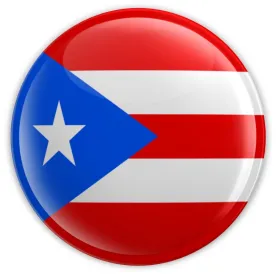A few thoughts on Tuesday’s oral arguments before the U.S. Supreme Court in the litigation over whether Puerto Rico’s Public Corporations Debt Enforcement and Recovery Act, an insolvency statute for certain of its government instrumentalities, is void, as the lower federal courts held, under Section 903 of the U.S. Bankruptcy Code:
-
Due to Justice Scalia’s death and Justice Alito’s recusal, only 7 Justices heard the case and only 4 votes are needed for a majority. Almost all of the questioning at oral argument came from Justices Sotomayor, Kagan and Breyer, plus a couple noteworthy questions from Justice Ginsburg. With the standard disclaimer that questions at oral argument are not necessarily predictive of a Justice’s votes, it seems clear from the questioning that Justice Sotomayor will vote to reinstate the Recovery Act and is the most passionate of the Justices about the issue, and, even if the relatively silent Chief Justice Roberts and the silent Justice Kennedy and Justice Thomas vote to affirm, the questions and musings of Justices Kagan, Breyer and Ginsburg suggest that Justice Sotomayor could sway them to her position and thereby obtain the 4 votes necessary for reversal of the First Circuit’s holding and reinstatement of the legislation.
-
All that can be said about the actual statutory language that the Supreme Court will interpret is that the drafting does not represent Congress’s finest work. (Justice Breyer provided the only moment of merriment on the Scalia-less panel when, after a suggestion that the opaque statutory language requires a contextual reading, he responded, “That may be, but I can’t say that an ‘airplane’ means a horse.”) There is no relevant legislative history, so it is not clear that Congress, when it amended the Bankruptcy Code to exclude Puerto Rico’s (and the District of Columbia’s) government instrumentalities from Chapter 9 eligibility, thought about the question of how that would or should impact Puerto Rico’s and D.C.’s right to enact their own insolvency statutes. So while nominally a statutory interpretation case, this is, on a technical level, almost purely a “what makes the most sense” case.
-
The First Circuit was persuaded that it would make no sense for Congress to act affirmatively to withhold from Puerto Rico the right to authorize its insolvent instrumentalities to file for bankruptcy under Chapter 9, while intending that Puerto Rico have the right to authorize such filings under some insolvency statute of its own creation. That seems almost unassailably correct; basic common sense suggests that whatever distrust of Puerto Rico must have motivated Congress to close the door to Puerto Rico’s ability to authorize its instrumentalities to file under Chapter 9 cannot be reconciled with Congressional intent that Puerto Rico be allowed to authorize such filings under its own version of an insolvency statute that might be identical to, or differ in unpredictable ways from, Chapter 9.
-
However, Puerto Rico seems to have gotten some traction before the Supreme Court with the proposition (which the First Circuit correctly rejected) that Congress cannot have intended to leave Puerto Rico’s instrumentalities in a “no man’s land” where they had no access to Chapter 9 and no access to an alternative insolvency regime. The short answer is that there is a high likelihood that Congress, if it had an intent on the matter when it eliminated Puerto Rico instrumentalities from Chapter 9 eligibility, precisely intended that Puerto Rico instrumentalities would not have access to an insolvency process unless and until Congress specifically authorized the applicable process (as it is currently being pressed to do by Puerto Rico and the U.S. Treasury.) Such federal control would be and is consistent with Puerto Rico’s status as a U.S. territory, however it is labeled in the Bankruptcy Code.
-
Justice Sotomayor also raised the issue of whether the principles of federalism and state sovereignty that make the federal Chapter 9 available only to instrumentalities of states that have elected into the Chapter 9 regime would be violated if Chapter 9 were the only insolvency regime available to a state, i.e. whether interpreting Section 903 of the Bankruptcy Code as applicable to states that have not exercised such option (as well as to Puerto Rico and D.C., which have no such option to exercise) would be unduly coercive and raise Tenth Amendment issues. The First Circuit left that question unaddressed on the grounds that Puerto Rico is not protected by the Tenth Amendment. But as Section 903 applies to any “State”, if the Supreme Court interprets it, and its restriction on a “State’s” ability to enact insolvency legislation for its instrumentalities, as applying to Puerto Rico, it also will be interpreting it as applying to the 50 states, including those that have not opted to authorize their instrumentalities to use Chapter 9. Whether or not any of the other Justices would view such an interpretation as presenting a substantial Tenth Amendment concern cannot be discerned from the oral argument, but the Court often interprets ambiguous statutes in a manner that avoids a potential constitutional concern, and Sotomayor’s apparent invocation of that principle may be targeted at her fellow Justices as a counterweight to the proposition that Congress, in eliminating Chapter 9 access for Puerto Rico’s instrumentalities, must have intended to preclude any access to bankruptcy by such instrumentalities absent direct authorization by Congress. In divining what Congress intended by Section 903, Sotomayor appears to be suggesting, the Supreme Court cannot focus myopically on what Congress would have intended for Puerto Rico.
-
As we have previously discussed, even if the Court revives the Recovery Act, the Recovery Act is, from Puerto Rico’s perspective, a problematic, and possibly ineffective, insolvency process. A principal purpose of bankruptcy is to adjust, restructure and impair contracts. The federal government is not subject to the constitutional restriction on impairment of contracts, and therefore the federally-enacted Chapter 9 process can impair debts and contracts. Puerto Rico, and therefore its Recovery Act, have been held to be subject to the constitutional restriction on impairment of contracts. A couple of the Justices noted this constraint, both in questioning what benefit Puerto Rico would derive from a reinstatement of the statute and as a potential protection that Congress might have taken into account if it did not intend to preclude non-federal insolvency law. If the Recovery Act is reinstated and used by Puerto Rico, one can expect years of litigation on the question of whether any debt adjustment (or other contract adjustment) effected thereunder does or doesn’t meet the high bar of public necessity and unavailability of reasonable alternatives required for such adjustment not to constitute an unconstitutional “impairment.”
-
Puerto Rico’s persistence in seeking reinstatement of the Recovery Act reflects a calculus that an insolvency process that produces a legally questionable and potentially unenforceable result is better than no process, and provides creditors more incentive for consensual resolutions than no process. Chapter 9 eligibility for Puerto Rico’s instrumentalities, and, if Congress were to grant it, “super Chapter 9“ eligibility for Puerto Rico itself, would clearly, in Puerto Rico’s view, constitute a far more advantageous and conclusive process. However, there is some risk to Puerto Rico that if the Supreme Court reinstates the Recovery Act before Congress acts on federal legislation to address Puerto Rico’s financial woes, the revival of the Recovery Act would undercut any Chapter 9 momentum, leaving Puerto Rico with its legally wobbly Recovery Act. But Puerto Rico appears willing to gamble that the Supreme Court will issue its decision after Congress has done whatever it will do, and, in any event, to believe that a constitutionally vulnerable local bankruptcy statute in the hand is worth a constitutionally bulletproof federal bankruptcy statute in the bush.





 />i
/>i
